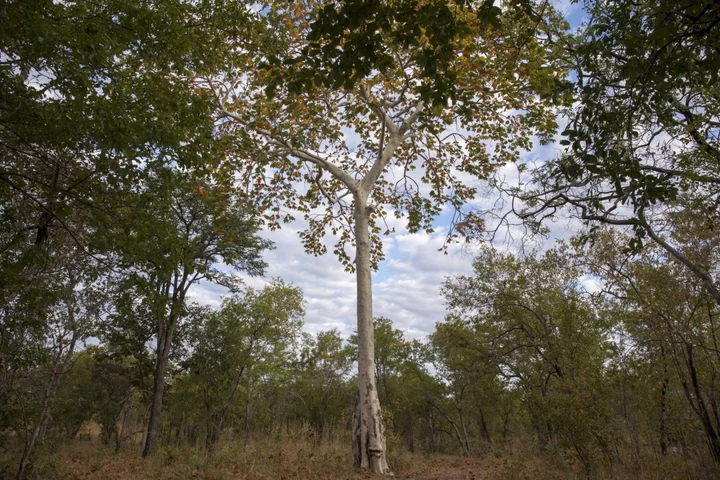The $2 billion market for carbon offsets is heading for a massive reset, as a growing number of sovereign governments announce their intention to tax, regulate or restrict trade in credits generated within their borders.
The details vary, but from Indonesia to Kenya to Honduras, the goals are the same: Governments want to retain more of the benefits of emissions-reduction projects, whether as revenue or as credit toward their own national climate goals.
“If you are a developing country and you have the right kinds of project opportunities, you’ve got a golden goose,” said Mark Lewis, head of climate research at Andurand Capital Management.
For countries with dense rainforests, mangrove swamps or other natural carbon sinks, carbon credits are increasingly considered alongside valuable minerals and metals like gold, lithium or copper
“Commodities markets have created the precedent,” said Samuel Gill, president and co-founder of Sylvera, a carbon research and ratings firm. “It is almost inevitable that nations come to see and treat carbon as any other national resource.”
That wake-up call has been prompted in part by a growing awareness that, as of now, governments and local stakeholders might receive just a tiny slice of the revenues made by foreign project developers, said Pablo Fernandez, chief executive of Ecosecurities, a project developer and investor.
For example, most of the €100 million in proceeds from one of the biggest offset projects, a forest-protection site called Kariba in Zimbabwe, were accrued by the Swiss developer South Pole and its Guernsey partner Carbon Green Investments. In Mexico, BP paid rural villagers a small fraction of the market value of the credits generated on their forest land, according to a 2022 Bloomberg Green investigation.
“I’m not saying it’s the pattern of the market, but we do have some projects that are badly designed and badly executed,” Fernandez said. “That leads to these situations.”
At the same time, carbon credits have new value for emerging markets. Under the 1997 Kyoto Protocol, wealthy countries had emissions targets and could buy credits from projects in developing countries to meet them. The 2015 Paris Agreement introduced targets for all, developing countries included, effective from 2020.
This means governments now view the units not just of a source of revenue, but as a tool to meet their international obligations. “The Paris Agreement acknowledges emissions as sovereign liabilities,” said Finn O’Muircheartaigh, director of policy and markets at BeZero Carbon, a research and ratings firm. “Countries are now recognizing they also have sovereign assets, which are their ability to reduce carbon or sequester carbon.”
The new sovereign trading market is being set up by the United Nations, with an accounting framework that prevents the same credit from being applied to more than one country’s climate goal. That means countries will have to decide if and when credits produced within their borders will be made available for use by others and when they’ll be used for national goals.
Though the details are still being fine-tuned, some countries have already begun to strike deals to ensure supply. More than three quarters of countries say they plan to or are considering using the UN carbon market to meet their targets, known as “nationally determined contributions.”
“Adjusting the amount of supply going to NDCs, rather than offset markets, has big implications,” according to BNEF , which predicts the voluntary offset market could reach $1 trillion by 2037.
One of those implications will be regulatory change and, at least at the beginning, inconsistency from one country to the next. Last month Zimbabwe announced its intention to retain 50% of carbon revenues generated there, effective almost immediately. Kenya is debating legislation that would provide local communities a 25% cut. In October, Tanzania introduced new rules governing the revenue split, but developers say they are still waiting for specifics.
Elsewhere, Papua New Guinea suspended new deals while it worked on regulation. Honduras put a moratorium on the sale of forest-based carbon credits, and Indonesia imposed conditions on the export of carbon credits.
Meanwhile, Malaysia has said it won’t limit sales of offsets abroad. Ghana, often lauded for its regulatory clarity, recently struck a deal to sell credits to Switzerland. Possibly one of the biggest impacts on the market, however, will be China — the largest supplier of offsets — which is readying a revamp of its domestic voluntary market.
The Paris Agreement was “revolutionary” in the way it empowered every country to set its own targets and manage its own market, Fernandez said. But that is a bumpy and inconsistent process, he added: “Today we are living with the problem of this.”
Investors say they welcome moves to create clarity, stability and predictability in the carbon market. ”Improved regulation – and the greater certainty that comes with it – represents progress,” said Ana Haurie, chief executive of Respira International, a carbon finance firm. “By creating certainty around the cost, the market can determine whether it’s a price worth paying.”
The emissions trading industry welcomed the new regulatory frameworks that would bring more certainty for investors but warned policy makers not to be overzealous.
“The new frameworks and the degree of government interventions will determine how attractive individual countries are for investors,” said Andrea Bonzanni, the director of international policy at the International Emissions Tradition Association. “If we make things too difficult, there will be no international carbon markets.”

